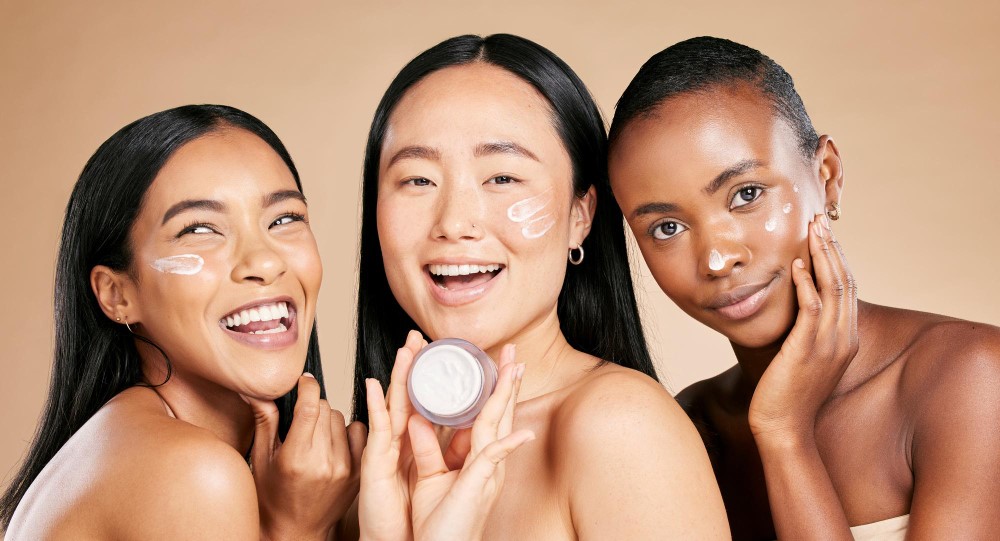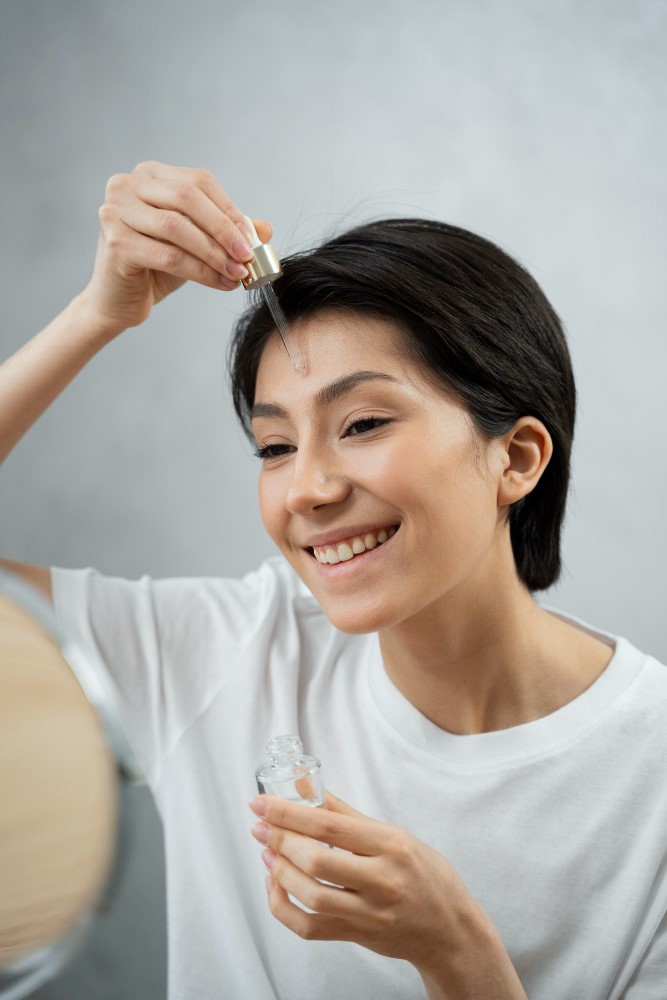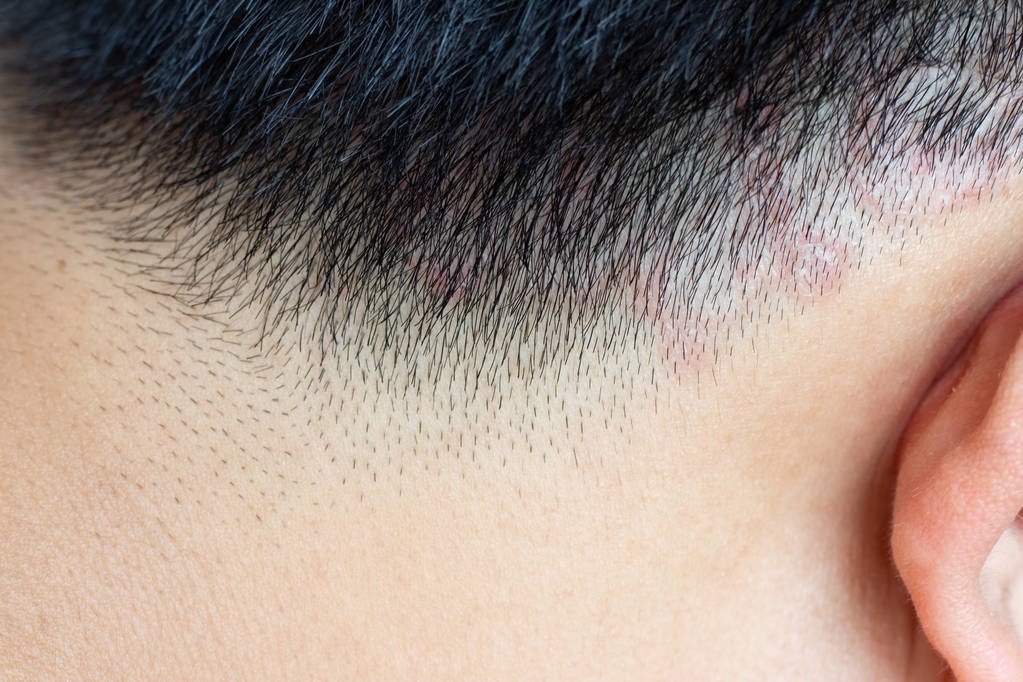April 23, 2024

In our fast-paced lives, taking care of our skin often falls to the wayside. However, with the right knowledge and habits, achieving healthy, glowing skin is within reach for everyone. Skincare isn't just about vanity; it's about self-care and nurturing the body's largest organ. Whether you're a skincare novice or a seasoned enthusiast, this comprehensive guide will provide you with the tools and techniques to develop an effective skincare routine tailored to your skin's needs.

Understanding Your Skin
Before diving into skincare products and routines, it's essential to understand your skin type and any specific concerns you may have. The four primary skin types are:
1. Normal: Balanced skin with few imperfections and minimal sensitivity.
2. Dry: Skin that lacks moisture, often feeling tight and rough.
3. Oily: Skin that produces excess sebum, leading to shine and potential acne breakouts.
4. Combination: A mix of oily and dry areas on the face, such as an oily T-zone (forehead, nose, and chin) and dry cheeks.
Identifying your skin type will help you select appropriate products and treatments that cater to your unique needs.
Building a Skincare Routine
1. Cleansing:
Cleansing is the foundation of any skincare routine, essential for removing dirt, oil, makeup, and environmental pollutants that accumulate on the skin throughout the day. Choose a gentle cleanser appropriate for your skin type:
- Normal to Dry Skin: Opt for a creamy or hydrating cleanser that cleanses without stripping away natural oils.
- Oily or Acne-Prone Skin: Look for a foaming or gel-based cleanser containing salicylic acid or benzoyl peroxide to help control oil production and prevent breakouts.
- Sensitive Skin: Choose a fragrance-free, non-comedogenic cleanser formulated with soothing ingredients like aloe vera or chamomile to minimize irritation.
Massage the cleanser onto damp skin using gentle, circular motions, then rinse thoroughly with lukewarm water. Pat your skin dry with a soft towel, avoiding harsh rubbing that can cause irritation

2. Exfoliation:
Exfoliation is the process of removing dead skin cells from the skin's surface, revealing smoother, brighter skin underneath. It also helps to unclog pores and prevent breakouts. There are two main types of exfoliants:
- Physical Exfoliants: These contain small particles or granules that physically slough off dead skin cells when massaged onto the skin. Choose a gentle scrub with round particles to avoid micro-tears in the skin.
- Chemical Exfoliants: These contain alpha-hydroxy acids (AHAs) or beta-hydroxy acids (BHAs) that dissolve dead skin cells and promote cell turnover. AHAs like glycolic acid and lactic acid are suitable for most skin types, while BHAs like salicylic acid are particularly beneficial for oily or acne-prone skin.
Exfoliate 2-3 times a week, adjusting the frequency based on your skin's tolerance and sensitivity. Avoid over-exfoliating, as it can lead to irritation and compromise the skin's barrier function.
3. Toning:
Toners help to rebalance the skin's pH levels after cleansing, remove any remaining traces of impurities, and prepare the skin to better absorb subsequent skincare products. Choose a toner that suits your skin type:
- Alcohol-Free Toners: Ideal for sensitive or dry skin, these toners hydrate and soothe the skin without stripping away moisture.
- Astringent Toners: Suitable for oily or acne-prone skin, these toners contain ingredients like witch hazel or salicylic acid to control excess oil and tighten pores.
Apply toner to a cotton pad or spray it directly onto your face, then gently swipe it across your skin in upward motions. Allow it to absorb fully before proceeding to the next step.

4. Treatment (Serums):
Serums are concentrated formulations packed with active ingredients designed to target specific skin concerns, such as hyperpigmentation, fine lines, or hydration. Choose serums based on your skin's needs:
- Vitamin C Serums: Brighten and even out skin tone while providing antioxidant protection against environmental damage.
- Hyaluronic Acid Serums: Hydrate and plump the skin by attracting and retaining moisture.
- Retinol Serums: Stimulate collagen production, reduce the appearance of fine lines and wrinkles, and promote cellular turnover.
- Niacinamide Serums: Minimize pores, regulate oil production, and improve overall skin texture.
Apply a small amount of serum to your fingertips and gently press it into your skin, focusing on areas of concern. Allow it to absorb fully before applying moisturizer.
5. Moisturizing:
Moisturizers help to hydrate, nourish, and protect the skin's moisture barrier, preventing water loss and maintaining skin health. Choose a moisturizer appropriate for your skin type:
- Gel or Lotion Moisturizers: Lightweight and non-greasy, ideal for oily or combination skin.
- Cream or Balm Moisturizers: Rich and emollient, suitable for dry or mature skin in need of extra hydration.
- Oil-Free or Non-Comedogenic Moisturizers: Formulated to hydrate without clogging pores, suitable for acne-prone or sensitive skin.
Apply moisturizer evenly to your face and neck using upward strokes, focusing on areas prone to dryness or dehydration. Allow it to absorb fully before applying sunscreen or makeup.
6. Sun Protection:
Sunscreen is the most crucial step in any skincare routine, protecting the skin from harmful UV rays that can cause sunburn, premature aging, and skin cancer. Choose a broad-spectrum sunscreen with an SPF of at least 30 and apply it generously to all exposed areas of skin, including your face, neck, and hands. Reapply sunscreen every two hours, or more frequently if swimming or sweating, to ensure continuous protection throughout the day.

Additional Tips for Healthy Skin
- Stay Hydrated: Drink plenty of water throughout the day to keep your skin hydrated from the inside out.
- Eat a Balanced Diet: Consume a diet rich in fruits, vegetables, and omega-3 fatty acids to support skin health.
- Get Adequate Sleep: Aim for 7-9 hours of quality sleep each night to allow your skin to repair and regenerate.
- Manage Stress: Chronic stress can wreak havoc on your skin, leading to breakouts and inflammation. Practice stress-relief techniques such as meditation, yoga, or deep breathing exercises.
- Limit Exposure to Harsh Elements: Protect your skin from harsh environmental factors like extreme cold or hot temperatures, pollution, and harsh chemicals.

Conclusion
Achieving radiant, healthy skin requires consistency, patience, and a personalized approach. By understanding your skin type, establishing a skincare routine tailored to your needs, and incorporating healthy lifestyle habits, you can unlock the natural beauty of your skin and enjoy the confidence that comes with it. Remember, skincare is not just about looking good; it's about feeling good in your skin, nurturing it, and embracing your unique beauty.
Related blog posts

Dermatology
The Growing Role of AI in Healthcare
Artificial Intelligence (AI) has become an integral part of modern life, with its influence growing rapidly, especially in healthcare.

Dermatology
Understanding Psoriasis: Causes, Symptoms, and Treatment Options
Psoriasis is a chronic autoimmune skin condition that affects millions of people worldwide.

Dermatology
What is scalp ringworm?
Scalp ringworm is a fairly common skin condition. Let’s learn about scalp ringworm and how to treat it.